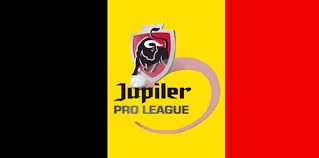By Samindra Kunti
May 15 – Belgian football’s deadlock has reached a boiling point. The Pro League is currently confronting a panoply of problems that require an urgent and transparent solution to prevent a further meltdown of the local game and not aggravate the plight of smaller clubs already hammered by the coronavirus crisis.
Will Club Brugge be crowned champions? Will Waasland-Beveren be relegated and which club will be promoted to the top flight? These are but some of the questions a fractured general assembly of the Pro League needs to address to tackle the growing impasse in the Belgian game.
In April, the league was swift to recommend that both the season be cancelled and league leaders Club Brugge be crowned champions, a decision that sent shock waves across Europe and irked UEFA, but over time the formality of rubber-stamping the board’s recommendation split opinion among the clubs, a divide aggravated by uncertainty over the TV rights money and the licenses for next season.
The general assembly was postponed four times after the pro league and clubs realised they required a government decision to invoke ‘force majeure’ and fend off legal claims from TV rights holders and sponsors for not completing the season. In May, the local authorities ruled that football could not return until July 31, not even behind closed doors.
The heel-dragging was further compounded by a slate of clubs failing to meet the requirements for their pro licenses for next season, highlighting the precarious and unsustainable modus operandi in the Belgian game, even if foreign investment and ownership is rampant, in particular in the deeply affected 1B division (CFG announced their majority acquisition of Lommel this week).
Initially, top flight clubs KV Oostende, Mouscron and Standard failed to receive pro licenses for next season, but in the second tier of the game the situation was considerably worse with rejections for Lokeren, Lommel, Roeselare and Virton.
After failing to secure any new investments, Lokeren has been declared bankrupt. KV Oostende received a lifeline following the acquisition of the club by American investment group PMG and Standard Liege relied on loans from former players to alleviate the most immediate financial concerns. Surprisingly, the BAS, Belgium’s equivalent of CAS, did ultimately award Mouscron a license despite intense scrutiny over the club’s longstanding links with Pini Zahavi.
A Pro League task force has now recommended that the current 16-team league format be maintained for next season and Waasland-Beveren be relegated to the second tier. OH Leuven, owned by King Power International Group, or Beerschot, with investment from Sheffield United owner Saudi prince Abdullah bin Musa’ad bin Abdulaziz Al Saud, looked set to gain promotion to the top flight, but the return leg of their play-off has not been completed. Local media report that the league is looking into a scenario in which the return match would be played in Germany after Leuven’s mayor prohibited the game from being staged in his city in early August. If the match can’t be played, Westerlo would be promoted.
The idea of an 18-team league format, potentially a more sound proposal to prevent a legal onslaught from clubs, has not garnered enough support to obtain a 80% majority that is required to alter the competition’s format. The top five clubs hold three votes each, the other eleven topflight clubs have two votes each and the second-tier clubs just one vote.
Earlier this week, it emerged that the Belgian FA (KBVB) has earmarked the €4.3 million UEFA distributed to the governing body in response to the coronavirus pandemic for a new FA headquarters, a decision that has evoked plenty of criticism as local clubs seek to navigate the financial fallout of the global health crisis.
Contact the writer of this story, Samindra Kunti, at moc.l1714153456labto1714153456ofdlr1714153456owedi1714153456sni@o1714153456fni1714153456

